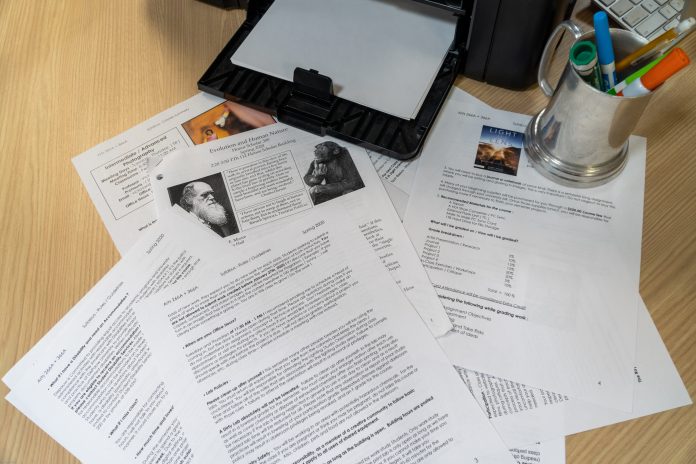
The first week of the spring semester is finished, and with it, the biannual period known by students and faculty as "syllabus week." This brief adjustment period is a time when class dynamic and size tend to fluctuate as students add and drop courses based off of syllabi and professor expectations. While having a brief window of time to add and drop courses can be helpful, it adds uncertainty to some student’s schedules.
This academic year, DePauw Student Government (DSG) created Resolution No. 23, requesting professors make their class syllabus or reading list public to all students prior to course registration. The resolution states, “With the current registration system, classes are sometimes unclear as to what they will offer.
In the resolution, DSG also acknowledges that it is challenging for students to add their desired courses after the initial course registration period because many classes are already filled or hard to get into.
While this resolution to make course syllabus or reading lists would allow students to make more informed choices when selecting classes for the coming semester, some students have expressed concern about the ability to look at course load so far in advance.
Jack Kneisley, a first year at DePauw University, agrees that a major reason students drop their classes during syllabus week results from a lack of information on what the courses are actually about.
“The issue is with the course description on e-services. Students go in thinking the class will be about one thing and then realize that it is focused on something totally different... Kniesley said.
Kneisley believes that giving students access to reading lists and course loads could lead to an issue of choosing classes that are easy and require the least amount of work.
Although some see a potential for academic abuse, other students, such as senior Gina Federighi, have a positive response accessible reading lists. “You have to remember that with courses, there is a financial aspect too,” Federighi said... “Students should know what to expect out of their class, both with work load and reading lists. It is their right as a paying student.” While she acknowledges the concerns about potential abuse to the system, Federighi states that people looking for easier classes probably wouldn’t even bother looking into the syllabus ahead of time.
As professors begin putting the resolution into practice, it is still unclear how a public preview of course syllabi will affect the student body and their decisions to enroll in classes.
Brenna Milligan ‘22 says, “Having more information about classes would be a nice bonus, but it’s not something that would influence my class decisions at all. It’s not a negative thing to provide more information about the courses, but it does seem like a difficult task for professors and could lead to unnecessary effort.”
The next few weeks will prove whether or not DSG’s adjustments to the adjustment period improve class retention, ease of class-picking, and general satisfaction with student’s schedules.
